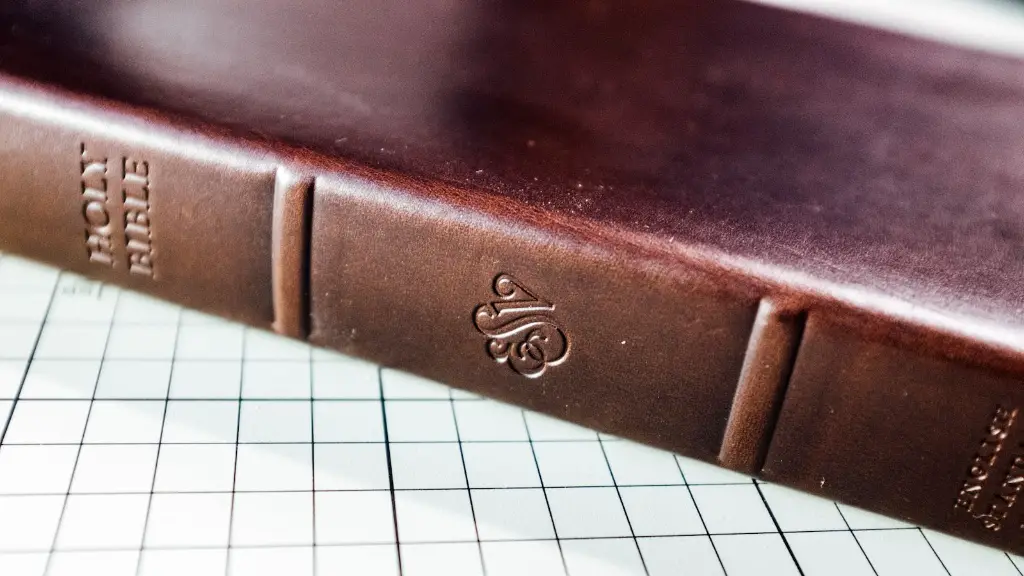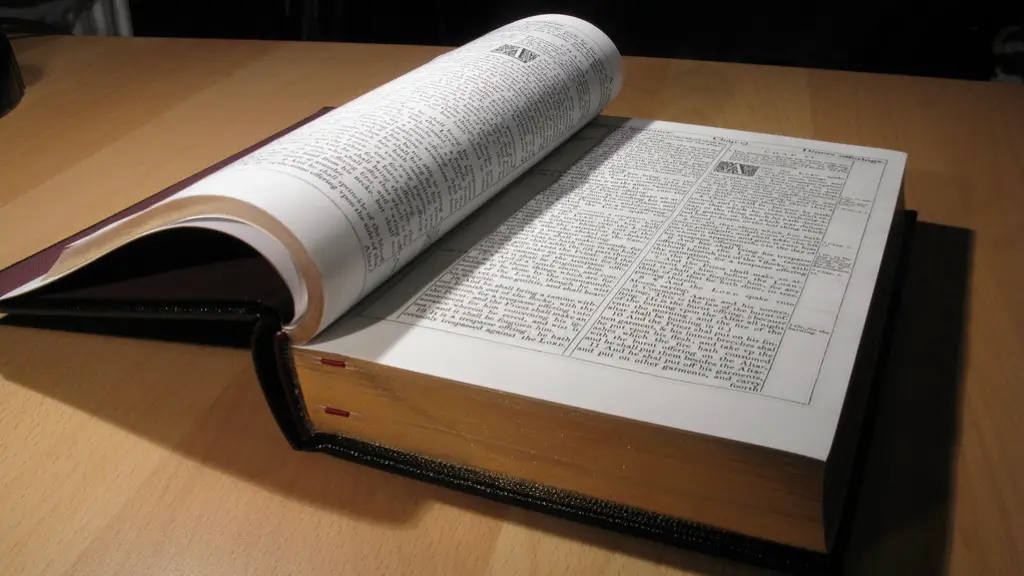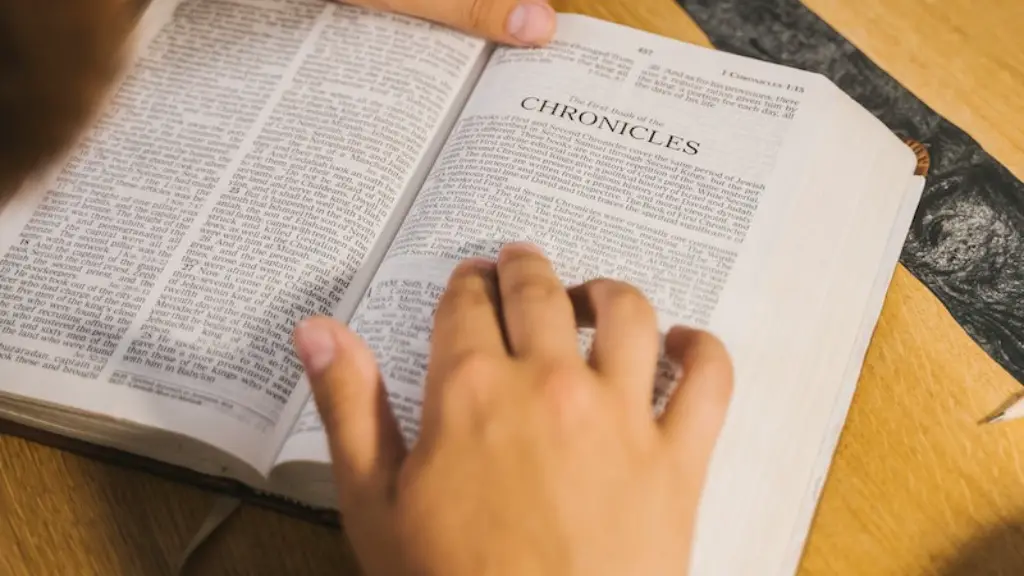Definition Of A Eunuch
Eunuchs as described in the Bible are males who were castrated or surgically rendered incapable of performing the sexual act. The practice appears to have been widespread in the ancient world, being employed by some of the leading figures, including those from the Assyrian, Babylonian, Persian, and Roman empires. The Bible itself references the practice several times, but its exact purpose in those contexts is not always clear.
The word eunuch comes from the Greek word eunoukhos, meaning “bed guard” and was first used by the Greeks to denote a man of influence and power due to his lack of sexual desires. This is far different than the biblical reference which speaks of them as a “gift” from God that would serve in a role above that of a regular servant or guard.
In the Old Testament, the eunuchs primarily served as advisors to the kings and their courts, providing counsel and support to the rulers. They were also in charge of managing the king’s harem and the estates of the rich and powerful. Some served in a religious capacity, while others were employed as guards or soldiers. For example, Ethiopian eunuchs are mentioned as being in charge of the queen’s affairs and her possessions in the book of Esther.
Significance Of Eunuchs In The Bible
Eunuchs are mentioned in several passages in the Bible and their roles are varied. For example, in Deuteronomy 23:1, it is stated that a eunuch shall not enter into the assembly of the Lord. Here, entering the assembly of the Lord was considered a special privilege, and one that was not extended to eunuchs.
In the New Testament, Jesus speaks of those who are made eunuchs by men in Matthew 19:12. In this passage, the eunuch is not used as a term of reproach, but rather as an example of a type of person who does not adhere to one of the seven forms of marriage as specified in that passage.
In Isaiah 56:3-5, the prophet directly mentions eunuchs as a group that is particularly favored by God and invites them to join in worship and service in the house of the Lord. This is an interesting contrast to the view of Deuteronomy 23, as it shows that God does not view those who are eunuchs as inferior to other members of the congregation.
Eunuchs are also mentioned in the Acts of the Apostles as part of the early Christian church. For example, in Acts 8:26-40, an Ethiopian eunuch is portrayed as being a new convert to Christianity and is baptized into the faith by the apostle Philip.
Modern Interpretation Of Eunuchs In The Bible
Today, eunuchs are still present in many societies and cultures, although they no longer occupy the high office and authority that they once did. In parts of the Middle East and Africa, they are still a part of traditional court life. In some places, they have become more associated with servitude and dishonor than with power and influence.
For religious scholars, the meaning of the term in the Bible has been debated at length over the centuries. Some believe that it refers specifically to men who had undergone genital mutilation, while others view it as a broader term for those who had lost their sexual powers, such as those who had undergone other forms of castration or had voluntarily chosen a chaste lifestyle.
Regardless of the interpretation, the presence of eunuchs in the Bible serves to illustrate the fact that it is possible to serve in a powerful and influential manner even without the power of sexuality. For many, this can be seen as a message of hope, although further study is needed to fully understand the role that eunuchs played in the ancient world.
Gender Identity Of Eunuchs In The Bible
The gender identity of eunuchs in the Bible is a complicated issue, as many scholars have noted that there were multiple categories of people who were referred to as eunuchs in antiquity. While some were literally castrated, others were assumed to have a more spiritual or social role in which their maleness was merely symbolic.
In the Christian tradition, this understanding of eunuchs has often been interpreted as a path for those who seek to devote their lives to God and to His service. For example, in the Gospel of Matthew, Jesus speaks of those who “choose” to become eunuchs, likely referring to those who voluntarily renounce earthly desires and pleasures in an effort to more fully serve the Lord.
In other ancient texts, such as the Book of Genesis and the Book of Daniel, eunuchs are depicted as wise counselors with a close relationship to the king. This implies that they were respected and powerful figures in the court, and that their gender identity was not necessarily viewed as being in opposition to the king’s.
Overall, the interpretation of eunuchs in the Bible is complicated and their roles vary depending on the context in which they are mentioned. For example, while some are seen as objects of ridicule and shame, others are depicted as respected and powerful figures who serve at the court.
Controversies Surrounding Eunuchs In The Bible
The role of eunuchs in biblical society and the various interpretations of their gender identity has been the source of much controversy throughout the centuries. Many modern scholars have argued that the Bible was written in a patriarchal society and this has led to a certain level of bias against those who have been portrayed as eunuchs.
For example, some have argued that the passages in which eunuchs are cast in negative light should be reinterpreted in a more gender-inclusive manner, so as to remove any derogatory depictions that may have been made in the past.
Other critics of the traditional interpretation of eunuchs in the Bible have noted that the use of such an extreme form of physical and sexual control may have been meant to represent the status of women in that culture as less than equal to men. This line of thinking suggests that the biblical authors may have viewed eunuchs as powerless due to their lack of reproductive capabilities and thus saw them as subordinate to men.
Furthermore, some feminist scholars have argued that the depictions of eunuchs in the Bible may have served to normalize and even glorify the practice of male genital mutilation, something which should be seen in a highly negative light in today’s society.
Cultural Significance Of Eunuchs In The Bible
Although the exact role that eunuchs played in biblical society is debatable, it is clear that they played an important role in the culture of the time. In the Old Testament, they were respected court advisors who served important political and religious functions.
In the New Testament, eunuchs were seen not only as castrated men, but also as those who had voluntarily chosen a life free from earthly pleasures and devoted themselves to preaching and serving the Lord. For many, this has served as an example of what it means to be a faithful Christian and a reminder that a life devoted to God lead to greater spiritual insight and power.
In modern times, the term eunuch has come to be associated with powerlessness and dishonor in some parts of the world. However, the biblical witness shows that this was not always the case, and that eunuchs in biblical times could be a source of influence and authority in the societies in which they lived.
Conclusion
The biblical portrayal of eunuchs is somewhat multifaceted, and their role in society is not always clear. Some passages suggest that they were seen as powerful figures with equal status to men, while others portray them as mere attendants or objects of ridicule. Overall, the presence of eunuchs in the Bible serves as an important reminder that a life devoted to God can lead to greater spiritual insight and power, no matter one’s biological or gender identity.





